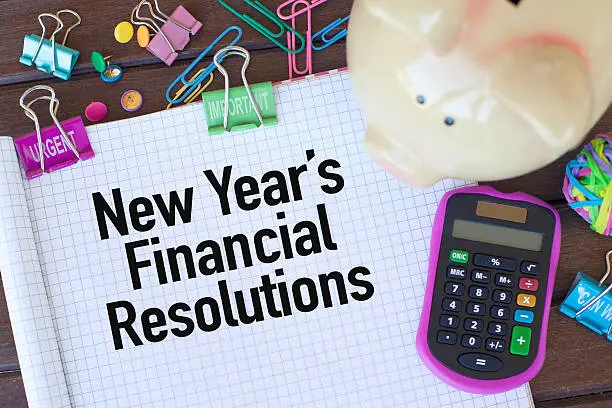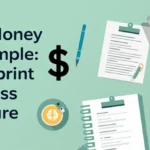The Best Fluffy Pancakes recipe you will fall in love with. Full of tips and tricks to help you make the best pancakes.
Table of Contents
Introduction to Personal Budgeting; Stop Wasting Money!
Personal budgeting serves as a fundamental practice for anyone seeking to enhance their financial well-being. At its core, budgeting involves the systematic allocation of income towards various expenses, savings, and investments. This process not only aids individuals in understanding their financial habits but also empowers them to make informed decisions regarding their money. The significance of mastering personal budgeting cannot be overstated; it is a critical instrument for achieving financial health and stability.
The practice of managing a budget provides several benefits that contribute to an individual’s financial success. Foremost, a well-structured budget fosters the achievement of financial goals, such as saving for a home, funding education, or planning for retirement. By clearly understanding where one’s money goes each month, individuals can prioritize their spending, ensuring that essential expenses are met while also allocating funds towards savings and future investments.
Moreover, effective budget management plays a vital role in reducing stress associated with financial uncertainty. By developing a clear picture of one’s financial landscape, individuals can anticipate and address challenges before they escalate into serious issues, such as overwhelming debt. Establishing a budget enables individuals to create a buffer, allowing them flexibility during unexpected financial setbacks. This enhanced control over finances ultimately leads to greater peace of mind.
Adopting a successful budgeting mindset requires more than just a financial plan; it necessitates a shift in perspective regarding money management. Embracing this transformation often involves recognizing the value of discipline and commitment. With the right structure in place, individuals can confidently navigate their financial journey, transforming aspirations into attainable realities. Next, we will explore the essential steps involved in constructing an effective personal budget.
Understanding Your Financial Situation
To effectively manage your personal budget, gaining a clear understanding of your financial situation is the crucial first step. This entails a thorough assessment of your income, expenses, debts, and savings. A comprehensive evaluation allows for informed budgeting decisions and a sustainable financial plan that aligns with your goals.
Start by gathering all relevant financial statements, such as bank statements, credit card bills, and pay stubs. This documentation will provide a clear picture of your total income, which may include salary, bonuses, interest, or other income sources. Next, it is essential to compile a complete list of your monthly expenses. Categorize these into fixed expenses, such as rent or mortgage, utilities, and insurance, and variable expenses, including groceries, entertainment, and discretionary spending.
Tracking your spending habits can be invaluable. Consider using spreadsheet software, financial apps, or budgeting tools to monitor your expenses closely. This enables you to identify spending patterns, recognize areas where you may overspend, and adjust accordingly. Numerous applications are available, such as Mint, YNAB (You Need A Budget), and PocketGuard, which can assist in providing a holistic view of your financial affairs.
In addition, take stock of any existing debts, including credit card balances, student loans, or personal loans. Understanding the total amount owed, interest rates, and payment terms allows you to prioritize repayments effectively. Lastly, assess your savings. Aim to establish an emergency fund that covers at least three to six months of living expenses, which can provide financial security in unexpected situations.
By methodically evaluating these aspects of your finances, you will establish a solid foundation upon which to create a practical and effective budget tailored to your individual circumstances.
Setting Clear Financial Goals

Establishing clear financial goals is a crucial aspect of effective personal budgeting. These goals can be broadly categorized into short-term and long-term objectives, both of which serve to provide direction and motivation for your financial decisions. Short-term financial goals typically encompass needs and desires that can be achieved within a year, such as saving for a vacation or creating an emergency fund. In contrast, long-term goals may span multiple years and often include significant aspirations like saving for retirement, buying a home, or funding a child’s education.
To begin the process of setting these financial goals, it is important to identify what matters most to you. Consider what you want to achieve in both the near and distant future. For example, a vacation can drive the motivation to save more diligently, while paying off debt can free up financial resources for other endeavors. Once you have discerned your ambitions, break them down into specific, measurable, achievable, relevant, and time-bound (SMART) goals. This systematic approach not only clarifies your objectives but also enhances the likelihood of success by making your goals manageable.
After identifying and structuring your goals, prioritization becomes essential. Determine which goals take precedence based on urgency and importance. For instance, if high-interest debt is weighing on your finances, prioritizing debt repayment may take precedence over short-term desires, like vacation savings. Numerous online resources and tools are available to assist in goal setting and budgeting. Websites such as Mint and You Need a Budget offer features that help track your progress and keep you accountable. By clearly identifying, organizing, and prioritizing your financial goals, you can create a comprehensive pathway toward achieving them, ultimately leading to better financial management and a sense of accomplishment.
Choosing the Right Budgeting Method
When it comes to managing personal finances effectively, selecting the right budgeting method is crucial. There are several popular strategies available, each offering unique benefits and potential drawbacks. Our website will help you improve your finance Understanding these methods can help individuals align their budgeting approach with their financial habits and aspirations.
One widely used technique is the envelope system. This method involves allocating specific cash amounts for various expenses into physical envelopes. For instance, one might have envelopes for groceries, entertainment, and utilities. The advantage of this system is that it can help curb overspending, as once the cash in an envelope is gone, no further expenses can be incurred in that category. However, the envelope method may not be practical for all expenditures, particularly those that require digital transactions.
Another effective approach is zero-based budgeting, which requires every dollar that comes in to be assigned a specific purpose. At the end of the month, the goal is to have a balance of zero, ensuring that income equals expenses. This method can enhance financial awareness and accountability. However, it may be time-consuming for those unaccustomed to detailed financial planning, as it involves tracking every expense diligently.
The 50/30/20 rule is also a popular choice, dividing income into three categories: 50% for necessities, 30% for wants, and 20% for savings or debt repayment. This straightforward framework offers simplicity and can easily adjust to various income levels. Nevertheless, it may not be suitable for individuals with fluctuating incomes or unique financial situations that require more customized allocation.
Each of these budgeting methods can be effective, depending on individual preferences and circumstances. To assist in selecting the right strategy, various online budgeting calculators are available, which can help individuals visualize their finances and evaluate which method suits their needs best. Engaging with these resources can significantly enhance one’s ability to control personal finances and ultimately achieve financial stability.
Tracking Your Expenses Effectively

Tracking expenses is a fundamental aspect of mastering personal finances. By actively monitoring your spending in real-time, you gain valuable insights into your financial habits, which can help refine your budgeting strategies. Effective expense tracking allows for increased awareness of where your money is going, thus enabling better decision-making concerning your personal budget.
There are several strategies for tracking expenses on a daily, weekly, and monthly basis. Daily tracking can be done through simple methods such as maintaining a spending journal, where you jot down each expense as it occurs. Alternatively, utilizing mobile apps designed for expense logging can streamline this process. Popular digital tools like Mint, YNAB (You Need A Budget), and PocketGuard provide user-friendly interfaces that automatically categorize transactions and help visualize your financial landscape.
For weekly tracking, setting aside time to review your transactions can be beneficial. This could involve consolidating daily logs and analyzing your spending patterns. At this point, it is recommended to compare your expenditures against your budget to identify any discrepancies or overspending. Monthly assessments should encompass a comprehensive review of your financial health, including total spending versus income, as well as the examination of fixed and variable costs, which can reveal opportunities for cutbacks.
Consistent expense tracking uncovers spending patterns that may not be immediately visible. By recognizing trends, you may find areas where you can reduce expenditures, which can contribute significantly to overall savings. Automating your expense tracking through apps reduces the burden of manual entry and provides ongoing updates about your financial status. With the integration of technology in money management, embracing tools that assist in tracking expenses can be both efficient and enlightening.
Adjusting Your Budget Regularly
Managing a personal budget is not a static task; rather, it requires ongoing attention to adapt to changing circumstances and unexpected expenses. Regularly reviewing and adjusting your budget is crucial in ensuring that your financial plans remain realistic and achievable. The first step in this process involves analyzing your budget performance. By evaluating your income versus expenses on a periodic basis, you can identify spending trends and areas where you may be overspending or underspending.
It is recommended to set up routine budget reviews, perhaps on a monthly or quarterly basis. During these reviews, take the time to compare your actual expenditures against your budgeted figures. If certain expense categories consistently exceed your budget, consider why this is happening. Are there unanticipated costs that occurred, or has your lifestyle changed? Identifying the reasons behind these variances allows you to make informed adjustments to your financial plan.
In addition to monitoring expenditures, be flexible with your budget. Life is unpredictable, and financial situations can shift due to changes in income, unexpected medical bills, or other emergencies. It is essential to build some flexibility into your budget to accommodate these challenges. One effective approach is to allocate a portion of your budget to a contingency fund. This fund can serve as a financial cushion to help you manage unforeseen expenses without derailing your overall financial goals.
Finally, consider consulting additional resources to deepen your understanding of financial flexibility. Articles focusing on maintaining flexibility in your financial plans can equip you with valuable insights and strategies. By integrating these practices into your budgeting routine, you can foster a more resilient and effective approach to managing your personal finances over time.
Emergency Funds and Savings Strategies

Establishing an emergency fund is a fundamental component of effective personal budgeting. An emergency fund serves as a financial safety net designed to cover unforeseen expenses, such as medical emergencies, car repairs, or sudden job loss. Ideally, this fund should hold three to six months’ worth of living expenses, providing individuals with peace of mind and financial stability. The significance of an emergency fund cannot be overstated, as it helps prevent financial stress and reliance on credit cards during unexpected situations.
To build an emergency fund, one effective strategy is to automate savings. By setting up automatic transfers from a checking account to a designated savings account, individuals can ensure that a portion of their income is consistently allocated towards their emergency fund without requiring active management. This approach not only simplifies the process but also fosters a sense of discipline in maintaining savings habits.
In addition to automation, leveraging high-yield savings accounts can significantly boost the growth of both emergency funds and general savings goals. High-yield savings accounts typically offer higher interest rates than traditional savings accounts, allowing individuals to earn more on their savings. When selecting a high-yield account, it is essential to consider factors such as fee structures and withdrawal limitations, as these can affect overall accessibility to funds.
For those looking to refine their budgeting skills further, numerous online savings calculators are available. These tools can help individuals determine an appropriate savings goal based on their specific financial situation and can guide them in creating a realistic timeline to achieve their emergency fund. Furthermore, guidelines provided by financial institutions can offer insights into maintaining an emergency fund effectively, emphasizing the importance of periodic evaluations to ensure the fund remains adequate as personal circumstances change.
Avoiding Common Budgeting Mistakes
Effective budgeting is crucial for achieving financial stability and success. However, many individuals encounter common pitfalls that can undermine their efforts. One prevalent mistake is underestimating expenses. People often neglect to account for all regular monthly expenses, which can lead to a budget that appears balanced on paper but fails to reflect reality. finance; It is advisable to conduct a thorough review of past spending to identify and categorize expenses correctly, ensuring that nothing essential is overlooked.
Another common oversight is not planning for irregular or variable expenses, such as annual insurance premiums, car maintenance, or unexpected medical costs.finance; These expenses can significantly disrupt one’s budget if left unplanned. Therefore, creating a sinking fund—a separate savings account designated for these irregular costs—can help manage these unpredictable financial demands more effectively. finance; This proactive approach allows for a more accurate and robust financial plan.
Additionally, focusing solely on cutting costs can be a counterproductive strategy. finance; While reducing unnecessary expenses is important, an exclusive emphasis on cutting may lead to depriving oneself of essentials or neglecting opportunities for investment and growth. finance; Instead of solely focusing on minimizing expenses, individuals should prioritize financial literacy and consider reallocating funds into areas that will yield long-term benefits, such as savings or retirement funds.
To further enhance budgeting success, individuals can utilize various resources and tools. Budgeting apps and software are available, providing structured frameworks for tracking and managing finances. finance; For a deeper understanding of budgeting principles, consider exploring educational materials from reputable financial institutions or experts. finance; By recognizing these common budgeting mistakes and implementing strategies to avoid them, individuals can create a well-rounded personal budget that paves the way for financial health and resilience.
Conclusion and Resources
In conclusion, mastering personal finances is not merely a suggestion; it is a vital skill that can significantly enhance one’s financial well-being. finance; Effective personal budgeting serves as the foundation upon which financial stability is built. finance; Throughout this blog post, we discussed various strategies, such as tracking expenditures, setting realistic financial goals, and embracing discipline when it comes to spending habits. By incorporating these practices into daily life, individuals can gain better control over their finances, reduce stress, and pave the way for achieving long-term financial objectives.
The journey to financial independence is ongoing, and it requires both commitment and continuous learning. As you embark on this path, we encourage you to apply the tips and methodologies outlined in this post. finance; Utilize budgeting tools and applications to simplify your tracking processes, and don’t hesitate to revisit your budget regularly to reflect any changes in income or expenses.
To further assist you in your financial management efforts, here is a curated list of valuable resources that can provide additional insights and guidance:
- The Budgeting Blog – A comprehensive resource offering budgeting tips and tools.
- Financial Literacy Podcast – An engaging podcast focusing on personal finance topics and expert interviews.
- Financial Planning Services – Professional services that can help you create a personalized financial plan.
By leveraging these resources, you can expand your understanding of personal budgeting and enhance your ability to manage your finances effectively. Your financial future is in your hands; take the steps necessary to gain control and achieve your fiscal goals.









